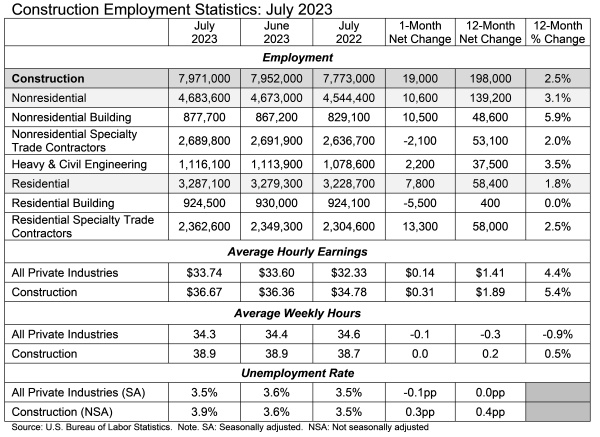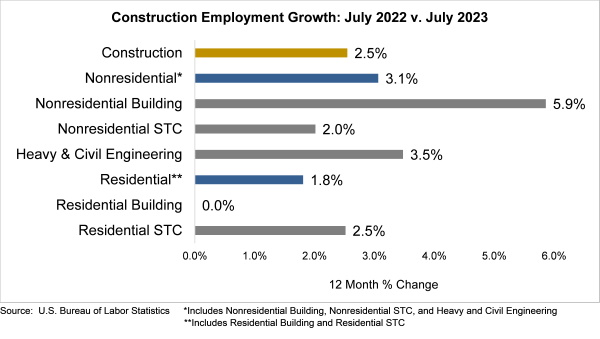ABC: Nonresidential Construction Employment Increases in July

The construction industry added 19,000 jobs on net in July, according to an Associated Builders and Contractors analysis of data released today by the U.S. Bureau of Labor Statistics. On a year-over-year basis, industry employment has expanded by 198,000 jobs, an increase of 2.5%.
Nonresidential construction employment increased by 10,600 positions on net, with growth in two of the three subcategories. Nonresidential building added 10,500 positions, while heavy and civil engineering added an additional 2,200 jobs. Nonresidential specialty trade lost 2,100 jobs on net.
The construction unemployment rate rose to 3.9% in July. Unemployment across all industries declined from 3.6% in June to 3.5% last month.
“The economy is slowing, and inflation remains problematic,” said ABC Chief Economist Anirban Basu. “While many economists have reversed their predictions of a near-term recession and conclude that the Federal Reserve will be able to engineer a soft landing, today’s report is a reminder that risks remain. Not only is the economy slowing, but wage pressures remain. Accordingly, the war on excess inflation has not yet been won, which means that the Federal Reserve may not be done raising rates.
“That said, nonresidential construction contractors continue to expand their payrolls,” said Basu. “General and public works contractors collectively hired thousands of people in July. However, weakness in several commercial real estate segments may help explain job losses among nonresidential contractors last month. Nonetheless, construction worker wages continue to grow rapidly in the context of structural skills shortages. According to data from the ADP Pay Insights report, construction workers who stayed at their job saw a 6.4% wage increase over the past year, or more than twice the rate of inflation.
“ABC’s Construction Confidence Index indicates that contractors will collectively continue to expand staffing for the rest of 2023,” said Basu. “That will presumably keep upward pressure on industry wages even if the broader economy continues to soften.”
Source: Associated Builders and Contractors, Inc.



